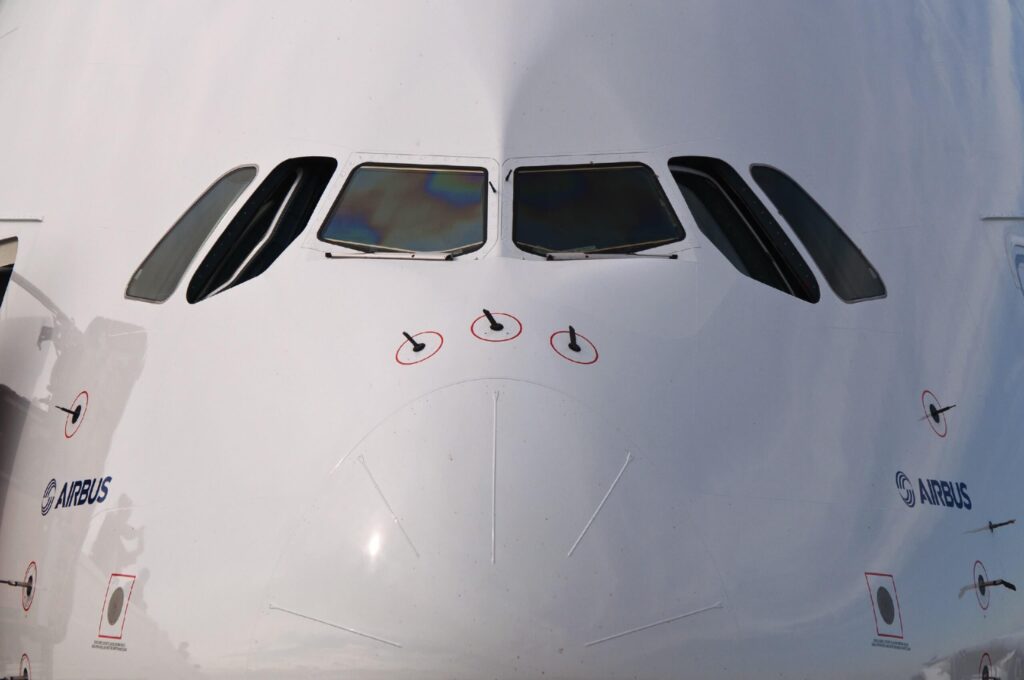The status of the Airbus A380 has been under question even before the pandemic took its toll on the air transport industry. The European aircraft manufacturer decided to end the Super Jumbo production in February 2019. More than two years have passed and the situation with the Airbus A380 has only deteriorated, as operators started phasing out the four-engine double-decker, which is known to have a limited second-hand market.
Now that the Airbus A380 program is coming to an end, AeroTime takes a look at how many Super Jumbos are left to deliver.
Airbus A380 deliveries nearing the end
In the first half of 2021, Airbus delivered a total of two Airbus A380 aircraft. Both Super Jumbos, registered as A6-EVO and A6-EVP, were delivered to Emirates ‒ the world’s largest Airbus A380 operator. Now, Airbus has just three Airbus A380 aircraft left to deliver. Yet again, all three outstanding deliveries are bound to join the Dubai-based Emirates fleet.
The last-ever Airbus A380 aircraft, Manufacturer Serial Number (MSN) 272, is expected to be delivered in May 2022, Emirates president Sir Tim Clark revealed in late 2020. The two remaining double-deckers, registered as A6-EVQ and A6-EVR, are reportedly scheduled to be delivered in the first half of 2022. By May 2022, the carrier would have a fleet of 122 Super Jumbos in its fleet.
AeroTime News reached out to Emirates for a comment regarding the dates of the last three A380 deliveries and did not receive an answer at the time of publication.
In February 2019, Airbus and Emirates agreed to reduce the total order for the A380 from 162 to 123 aircraft and include up to 40 Airbus A330-900neos and 30 Airbus A350-900 aircraft instead. As Emirates, Airbus’ main customer, shrank its order book, the manufacturer announced the cancellation of the production of the A380.
“As a result of this decision we have no substantial A380 backlog and hence no basis to sustain production, despite all our sales efforts with other airlines in recent years. This leads to the end of A380 deliveries in 2021,” Airbus Chief Executive Officer Tom Enders revealed in a statement on February 14, 2019.
Airbus had a total of 251 orders of A380 aircraft with the last three yet to be delivered to Emirates.
Future of Emirates’ Airbus A380s
The ongoing struggles with the Boeing 777X delivery timeline are raising questions about the future of Emirates’ Airbus A380s, which are destined to be replaced with Boeing’s yet-to-be-certified widebody. Now that there are just three A380s left to deliver, the question which begs the answer is how long will Emirates keep Super Jumbos in its fleet?
Emirates, having a quite hefty fleet of Airbus A380s ‒ 119 with one being retired ‒ reaffirmed its belief in the double-decker. “The A380 […] will continue in the plan until the mid-2030s,” said Sir Tim Clark, while speaking during CAPA Live on February 10, 2021.
However, the Super Jumbo retirement might be further postponed, as Clark revealed in a conversation with the aviation consultant John Strictland that he had doubts the airline’s first Boeing 777X aircraft would come before 2024. Such a delay might make the A380 fly even longer.
Additionally to the A380 replacement delays, there are more arguments to keep the type flying longer. Especially since Emirates not that long ago introduced the Premium Economy class/seats on its double-deckers.
The largest Super Jumbo operator in the world will have to eventually retire the type, as Emirates has seemingly lined up its replacement with a variety of aircraft, namely the Airbus A350, Boeing 787 Dreamliner, and the yet-to-be-certified Boeing 777X.
“With the [Boeing 777 – ed. note] X gradually slipping in to replace the A380s that eventually go and retire, we will have a leaner, very fuel-efficient and environmentally friendly network that will probably be 30% larger in terms of cities served,” commented Clark on the Super Jumbo’s replacement during CAPA Live event in February 2021.
Currently, out of 119 Emirates’ Airbus A380 aircraft, 90 are parked due to the ongoing COVID-19 pandemic, Planespotters.net data shows.

